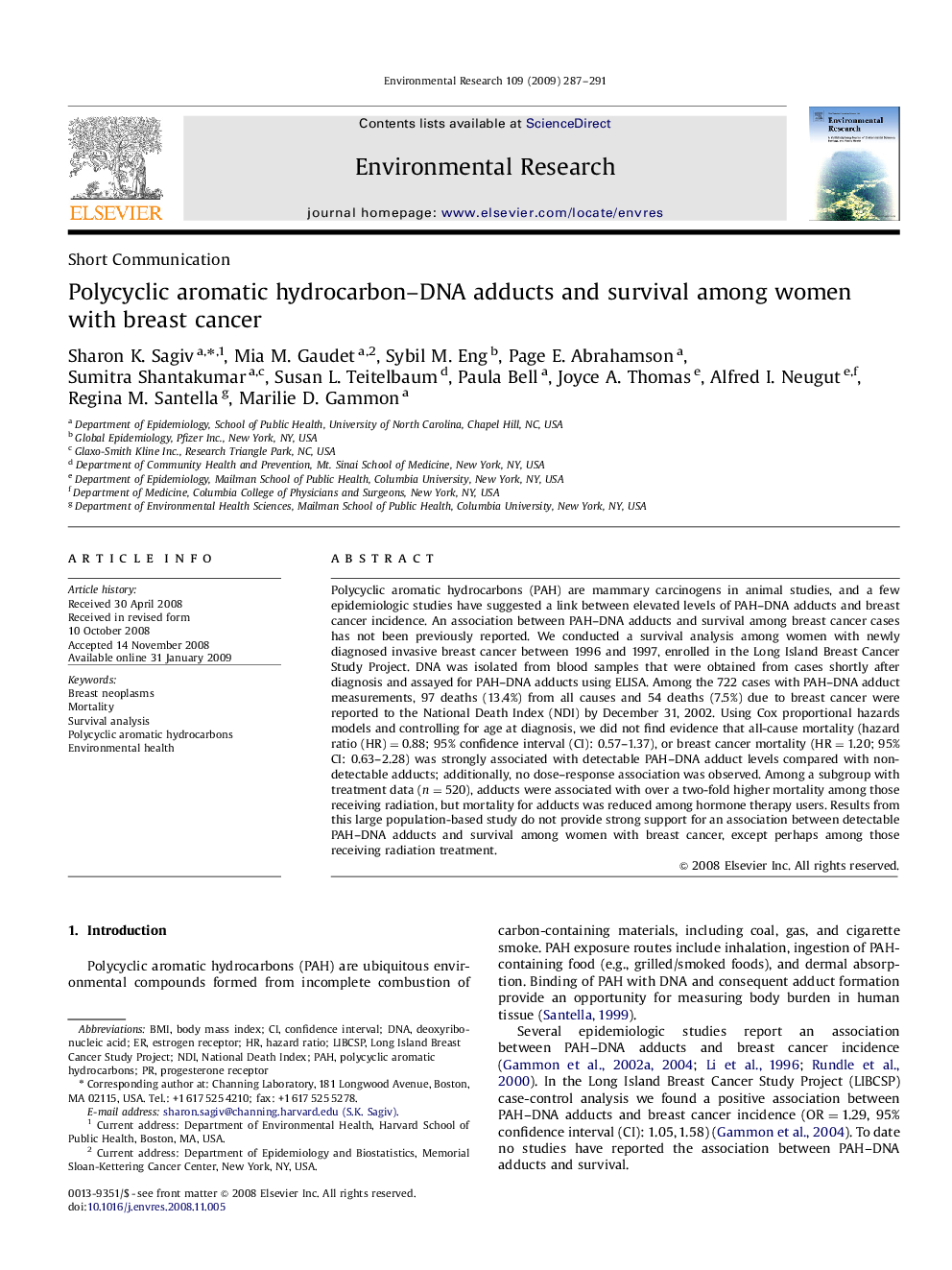| Article ID | Journal | Published Year | Pages | File Type |
|---|---|---|---|---|
| 4470719 | Environmental Research | 2009 | 5 Pages |
Polycyclic aromatic hydrocarbons (PAH) are mammary carcinogens in animal studies, and a few epidemiologic studies have suggested a link between elevated levels of PAH–DNA adducts and breast cancer incidence. An association between PAH–DNA adducts and survival among breast cancer cases has not been previously reported. We conducted a survival analysis among women with newly diagnosed invasive breast cancer between 1996 and 1997, enrolled in the Long Island Breast Cancer Study Project. DNA was isolated from blood samples that were obtained from cases shortly after diagnosis and assayed for PAH–DNA adducts using ELISA. Among the 722 cases with PAH–DNA adduct measurements, 97 deaths (13.4%) from all causes and 54 deaths (7.5%) due to breast cancer were reported to the National Death Index (NDI) by December 31, 2002. Using Cox proportional hazards models and controlling for age at diagnosis, we did not find evidence that all-cause mortality (hazard ratio (HR)=0.88; 95% confidence interval (CI): 0.57–1.37), or breast cancer mortality (HR=1.20; 95% CI: 0.63–2.28) was strongly associated with detectable PAH–DNA adduct levels compared with non-detectable adducts; additionally, no dose–response association was observed. Among a subgroup with treatment data (n=520), adducts were associated with over a two-fold higher mortality among those receiving radiation, but mortality for adducts was reduced among hormone therapy users. Results from this large population-based study do not provide strong support for an association between detectable PAH–DNA adducts and survival among women with breast cancer, except perhaps among those receiving radiation treatment.
